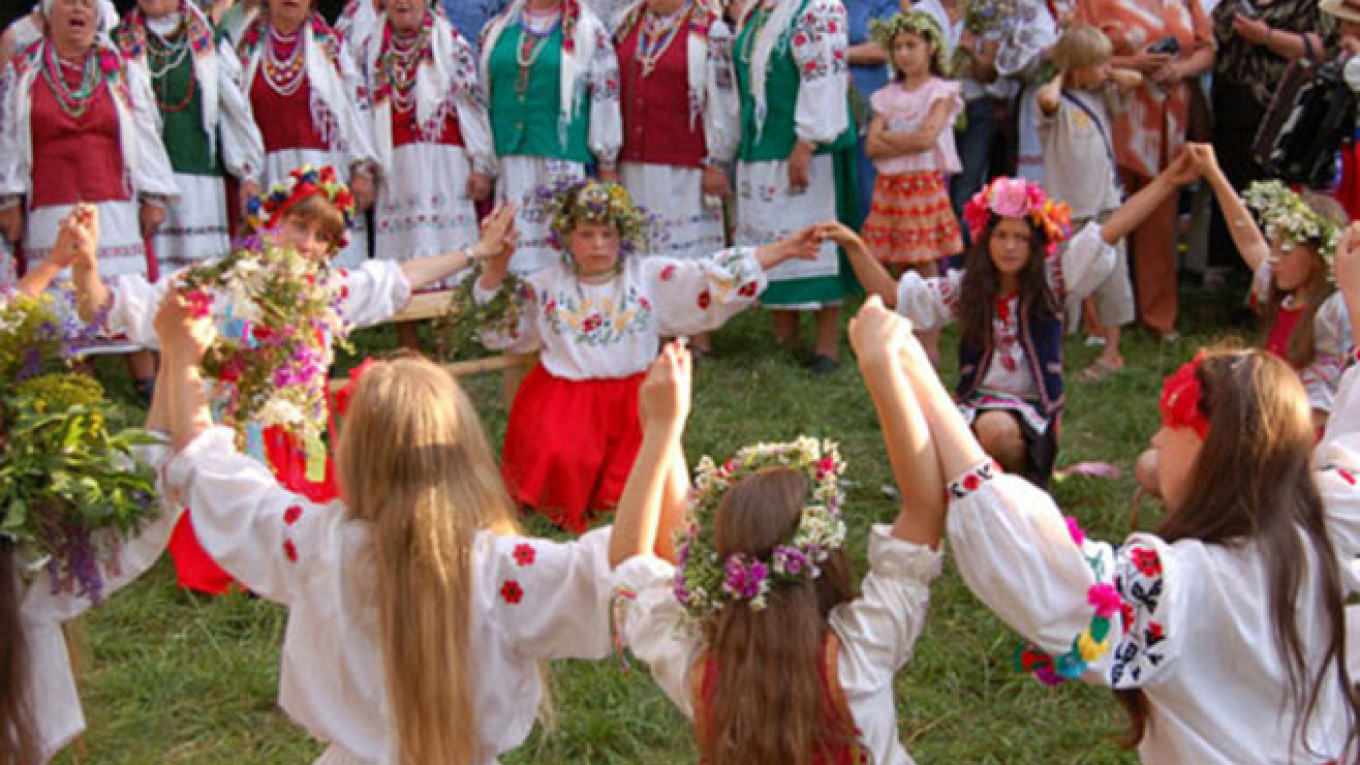В Украине: In Ukraine
If you are having trouble understanding Russian-Ukrainian relations, take a look at Russian discussions about prepositions used with Украина (Ukraine). They will tell you everything you need to know.
In case you forgot, in Russian на (on, at, in, to) is used with islands, mountains, and areas without fixed borders, like на Руси/на Русь (in or to Rus). В (in, to) is used with countries, like в России/в Россию (in or to Russia). This is a bit similar to distinction in English between "in the Ukraine," which sounds like a territory, and "in Ukraine," which sounds like a country. Before the dissolution of the U.S.S.R., the norm for most Russian speakers was на Украине. But when Ukraine became a country, the leaders requested that the Russian grammatical norm for countries be applied: в Украине. People have been arguing about it ever since.
Here is a breakdown of the main arguments.
The "tradition says" argument: мы, носители языка, привыкли так говорить (we native speakers are used to saying it this way). This would be a good argument if it were true. Over the centuries both на and в have been used. В Украине has been used by such political and cultural leaders as Pushkin, Gogol, Chekhov and Peter the Great.
The "authority says" argument: Справочное бюро gramota.ru предпочитает консервативную норму — "на Украине" (The Inquiry Bureau of gramota.ru prefers the conservative norm of "in the Ukraine"). The problem with this argument is that the most recent edition of the Rozental grammar book supports "в Украине" and the Academy of Sciences says "есть две традиции" (there are two traditions).
Another problem with this argument is that no less an authority than the Russian government has used "в Украине" in its formal documents and designations: Посольство Российской Федерации в Украине (the Embassy of the Russian Federation in Ukraine). Now they use на.
The "don't mix politics with language argument" (Не надо путать язык с политикой). This is a bit rich coming from a country where politics have substantially changed the Russian language twice in one century. 1917: Господин и госпожа (Mr. and Mrs.) are out, товарищ (comrade) is in. 1992: Товарищ is out and господин и госпожа are in.
The "outsiders can't change Russian grammatical norms" argument: суверенность чужого государства не может влиять на грамматику нашего языка (the sovereignty of a state cannot influence the grammar of our language). Who is trying to influence Russian grammar? Is Ukraine a country? Is в used with every single country in Russian?
The "ain't nobody gonna make me talk different" argument. Зачем мне менять язык? (Why should I change my language?) How about: because it is important to Ukrainians?
And finally there's the "it doesn't matter" argument: Государственность Украины никак не зависит от того, говорят ли русские "в Украине" или "на Украине" (The sovereignty of Ukraine does not in any way depend on whether Russians say "in Ukraine" or "in the Ukraine"). I would agree with this, but for the odd way language usage signals attitudes and shapes perceptions. And after listening to Russian politicians, the sovereignty of Ukraine may not actually depend on prepositional use, but it certainly correlates with political positions.
In the end, I'm afraid the situation is more like this commentator suggests: Если ехать в гости, то скажи "в Украину."А если собираешься атаковать, то "на Украину" (If you're going to visit, say "to Ukraine." If you're going to attack, say "to the Ukraine").
Michele A. Berdy, a Moscow-based translator and interpreter, is author of "The Russian Word's Worth" (Glas), a collection of her columns.
A Message from The Moscow Times:
Dear readers,
We are facing unprecedented challenges. Russia's Prosecutor General's Office has designated The Moscow Times as an "undesirable" organization, criminalizing our work and putting our staff at risk of prosecution. This follows our earlier unjust labeling as a "foreign agent."
These actions are direct attempts to silence independent journalism in Russia. The authorities claim our work "discredits the decisions of the Russian leadership." We see things differently: we strive to provide accurate, unbiased reporting on Russia.
We, the journalists of The Moscow Times, refuse to be silenced. But to continue our work, we need your help.
Your support, no matter how small, makes a world of difference. If you can, please support us monthly starting from just $2. It's quick to set up, and every contribution makes a significant impact.
By supporting The Moscow Times, you're defending open, independent journalism in the face of repression. Thank you for standing with us.
Remind me later.








